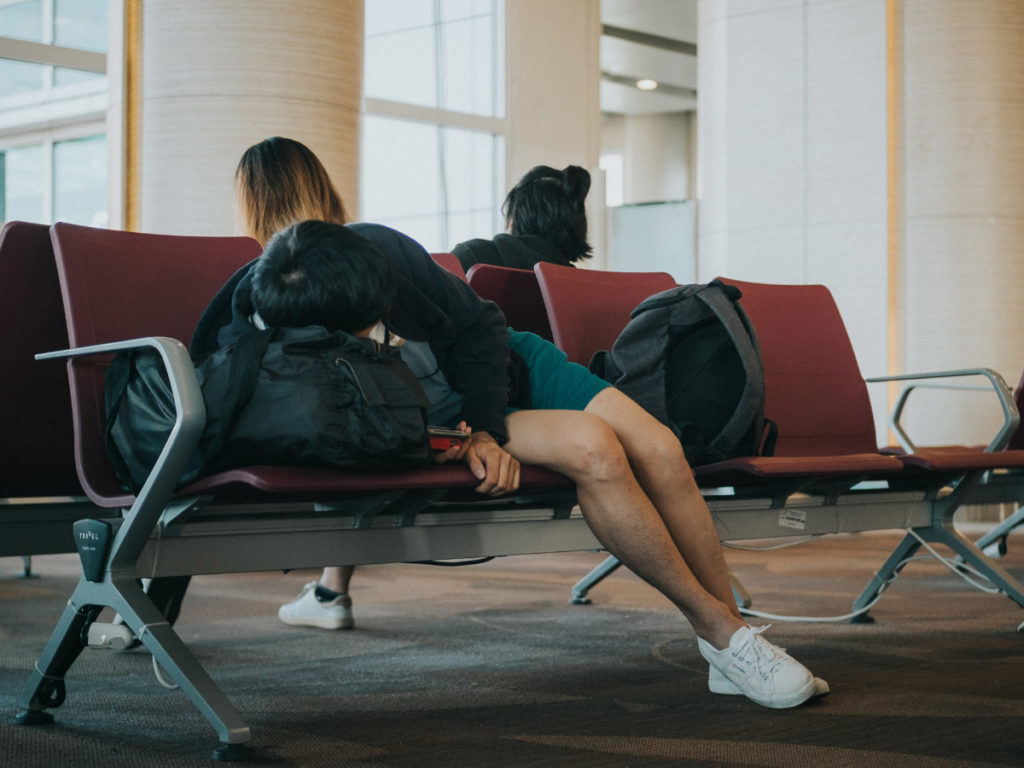Travelling to new destinations can be exciting, but jet lag in different time zones can quickly put a stop to your fun. The effects of jet lag can disrupt the first few days of your trip, and your return home, by leaving you feeling tired and disoriented. By using some of our expert tips and treatments, you can minimise jet lag’s impact and make the most of your journey.
Change your bedtime
Start adjusting your sleep schedule a few days in advance of your journey. By gradually shifting your hours closer to your destination’s time zone, you can help your body adapt more smoothly, reducing the intensity of any jet lag symptoms.
Stay hydrated
During long flights, it’s essential to drink plenty of water and avoid excessive caffeine and alcohol, as they can dehydrate your body and worsen the symptoms of jet lag. Using a hydrating facial mist or eye drops can also help combat dryness caused by the cabin air.
Improve your travel experience
Make your journey as comfortable and relaxing as possible — you can try using a neck pillow, wear comfortable clothing, and even use noise-cancelling headphones or earplugs to reduce noise. If you’re flying, make an effort to move around the cabin to improve blood circulation and reduce stiffness.
Expose yourself to natural light
Spending time outdoors or near windows can signal to your body that it’s daytime, which helps you adjust to your new time zone. This helps regulate your internal body clock, known as the circadian rhythm.
Avoid napping
Resist the temptation to take long naps when you arrive, as this can affect your sleep schedule and make jet lag symptoms last longer. Instead, try to stay awake until an appropriate bedtime in the local time zone. If you’re struggling with fatigue at first, short 20-30 minute power naps can help without impacting your sleep patterns.
Try melatonin
Melatonin, a hormone naturally produced by the body, plays a crucial role in regulating sleep-wake cycles. You can help reset your body’s internal clock and adjust to the new time zone with melatonin supplements. To learn more about melatonin, start a free online consultation here.
Take melatonin strategically
To effectively use melatonin, take it at your desired bedtime in the new time zone. This timing helps signal your body to prepare for sleep at the local time. Remember, melatonin is not a sedative — it’s a supplement that helps synchronise your body’s internal clock.
